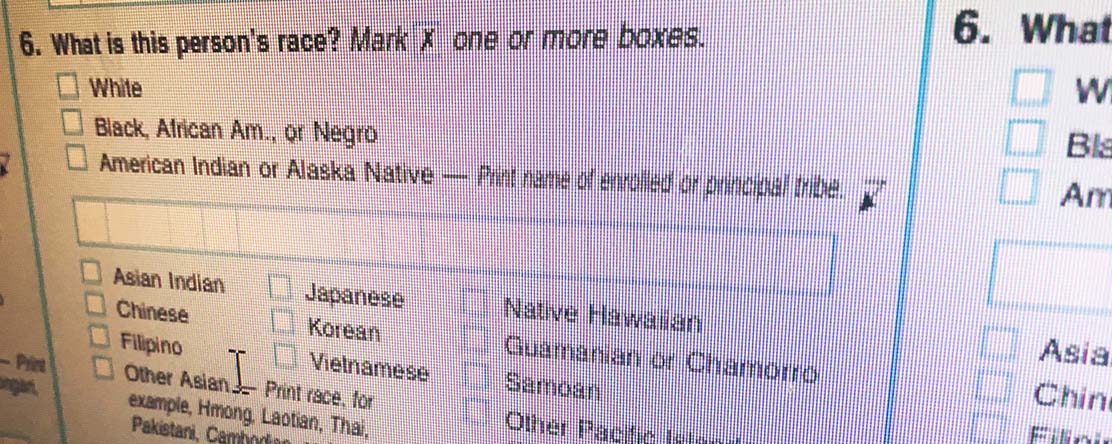
In the News
Adding a Citizenship Question to the 2020 Census Would be Disastrous for Public Health
-
Focus Areas
Data, Technology & Innovation -
Expertise
Technical Assistance -
Programs
Survey Research Group

As a research scientist who designs surveys for a living, I make it a point to complete almost every one sent to me because I know the value of good data. But I find myself wishing I could sit out the 2020 census — or at least leave one question blank.
The Trump administration’s eleventh-hour decision to add a question about citizenship to the census will almost certainly have a major chilling effect among immigrants. One expert predicts that as many as 24 million people would not be counted as a result of adding this question. This would sabotage the census, seriously compromise vital public health research, and ultimately damage the public’s health.
In my own work designing and administering public health surveys, I rely on data from the decennial census to ensure accurate representation. These data form the basis for any population-level statistic you hear about — birth rate, death rate, disease rates within a community, and so on. The lack of a reliable population count would produce cascading errors on any subsequent research using those data.
My colleagues at the Public Health Institute, for example, used U.S. census data in a groundbreaking study that looked at breast cancer rates in California at the smaller census-tract level, rather than by county. They were able to map previously unidentified areas with elevated rates of breast cancer, paving the way for further research on those regions and helping local health officials plan screenings and outreach activities. If the statistics my colleagues used were fatally flawed, we might be over-screening women who aren’t at risk or entirely missing those who are.
At a national level, the Centers for Disease Control and Prevention uses census data to identify communities across the country that are vulnerable to disasters or disease outbreaks and that may need assistance preparing for these hazards. The CDC also uses census information to pinpoint geographic areas with low education levels and high poverty rates — two key data points that indicate poorer health status.
Public health and government agencies use census figures to plan social service programs like the Special Supplemental Nutrition Program for Women, Infants, and Children. They are also used for disaster response — to help rescue victims of a hurricane, for example. Undercounts on the census represent real people who would be invisible to rescuers. If an area like Houston were to flood again, an undercount of residents would be devastating for the entire community, not just for immigrants.
Census data are also used to distribute more than $600 billion each year to states for important health-related public programs such as Medicaid, emergency room services, school lunches, and preventive care services. The census data inform plans to shape healthy communities, including the development of businesses and the building of roads, schools, health centers, and other important institutions. If you’re concerned about things like teen pregnancy rates, air pollution, or the opioid epidemic, you should also be concerned about accurate census data.
As a survey researcher, I know that questions typically go through a rigorous testing process that can take months or even years to determine if they are reliable and valid — especially on something as important as a national census. There won’t be an opportunity to thoroughly test the citizenship question.
For the first time, the census will be conducted mostly online. Many experts are concerned that the online systems won’t be secured by the time the 2020 census goes live. With near-daily revelations of high-level data breaches, it is reasonable for people to worry that their personal information could be compromised, intentionally or not. If they also choose to opt out of participating because of the citizenship question, the numbers will be even further skewed.
It’s no secret that immigrants in the U.S. are already fearful in a political and social climate charged by anti-immigrant rhetoric and highly publicized Immigration and Customs Enforcement raids. The Census Bureau’s own expert advisory panel alluded to this, cautioning that the insertion of a citizenship question would lead to an incorrect census count.
Even before the issue of the citizenship question arose, low-income people, people of color, and immigrants have historically been the most undercounted census groups — and they are precisely the ones who stand to lose the most if public health and other programs are underfunded due to more widespread undercounting of U.S. residents.
Beyond public health, distorting census data by asking this question is a fundamental threat to our democracy. The number of representatives sent to Congress and the number of Electoral College votes are determined by the census, and an inaccurate count would jeopardize the representation of millions of citizens and noncitizens alike.
The U.S. Constitution calls on the government to conduct a head count of all persons in the country, not all citizens. Including a question about citizenship is a misuse of the data process and an abuse of power.
Continue reading the full op-ed in STAT.
Originally published by STAT
More Updates
Work With Us
You change the world. We do the rest. Explore fiscal sponsorship at PHI.
Support Us
Together, we can accelerate our response to public health’s most critical issues.
Find Employment
Begin your career at the Public Health Institute.




